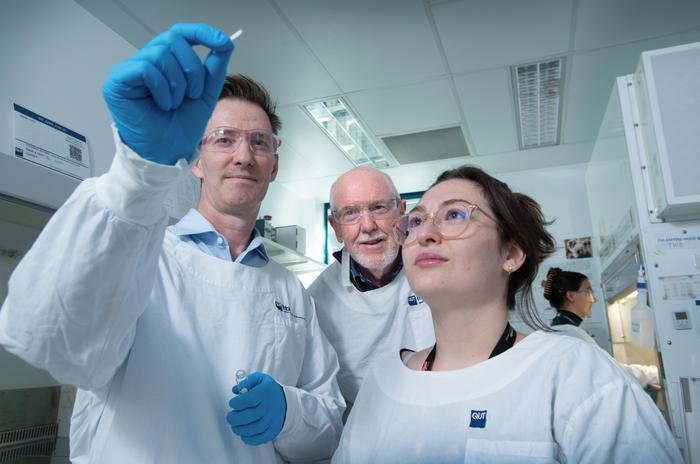A booster vaccine using implant technology for koalas is being developed by QUT researchers in the fight against the deadly Chlamydia disease.

Credit: QUT Media
A booster vaccine using implant technology for koalas is being developed by QUT researchers in the fight against the deadly Chlamydia disease.
The new technology is designed to avoid problems for wild koalas and wildlife handlers having to recapture or hold the animals for 30 days, to receive a second immunisation.
- Koala chlamydia is a bacterial infection and is one of the leading causes of death for Australian koalas.
- QUT researchers have been successfully testing a two-shot vaccine on an isolated wild koala colony in a five-year treat-and-track study.
- The new booster vaccine will be like other drug-eluting implant devices used in humans, slightly larger than a pet microchip.
Professor Ken Beagley, from QUT’s School of Biomedical Science, is leading the research team after being awarded a health grant to develop the technology from the Saving Koalas Fund.
“This technology will significantly increase our ability to vaccinate wild koalas to protect against chlamydial infections, a major cause of infertility and population decline,” Professor Beagley said.
Professor Beagley developed the first koala vaccine for Chlamydia in 2010. Since then, the leading immunologist spearheaded the first immunisations of a wild koala colony in the Gold Coast hinterland after 10 years developing the vaccine in the lab.
Working with Dr Michael Pyne OAM and the team at Currumbin Wildlife Hospital, the project has now resulted in up to 300 vaccinated koalas, with grand joeys being born to healthy females, using a two-shot vaccine approach.
Development of one-shot vaccine implants to further protect koalas against Chlamydia will allow in-the-field vaccination of wild koalas.
“It will also allow all koalas being treated at Currumbin Wildlife hospital and other koala care facilities, to be vaccinated prior to release, without the need to hold the animals for a further 30 days,” he said.
“We want a vaccine that reduces human interference, letting koalas be koalas.”
The implant device is being designed to release the booster at four to five weeks after the first vaccination.
Professor Beagley is working with QUT polymer chemist Professor Tim Dargaville and postdoctoral research fellow Dr Emily Bryan to develop the device.
The grant is worth $749, 687 with the research to be completed by April 2026.
A project partner involves the Currumbin Wildlife Hospital Foundation.




